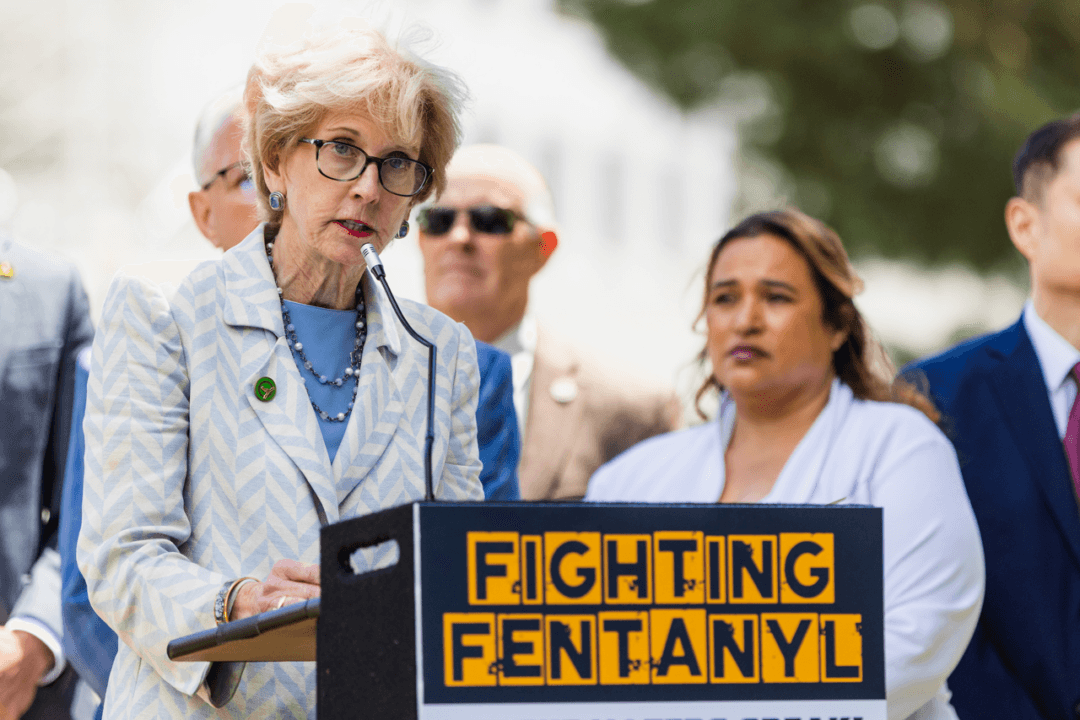Assembly members, law enforcement officials, and local representatives met on June 6 in front of the Capitol in Sacramento to announce a proposed constitutional amendment that would put stricter fentanyl enforcement on the upcoming 2024 presidential election ballot.
“The fentanyl crisis is tearing our communities apart and devastating our family, friends and neighbors. No parent or family should have to suffer the loss of a child,” Assemblywoman Diane Dixon (R-Newport Beach) told The Epoch Times by email after the announcement. “[This amendment] will bring Alexandra’s Law to the voters so they can make the final decision on this critical life and death policy solution.”





